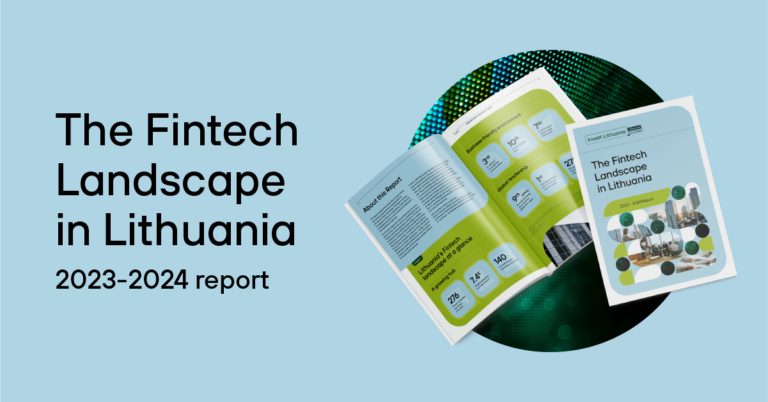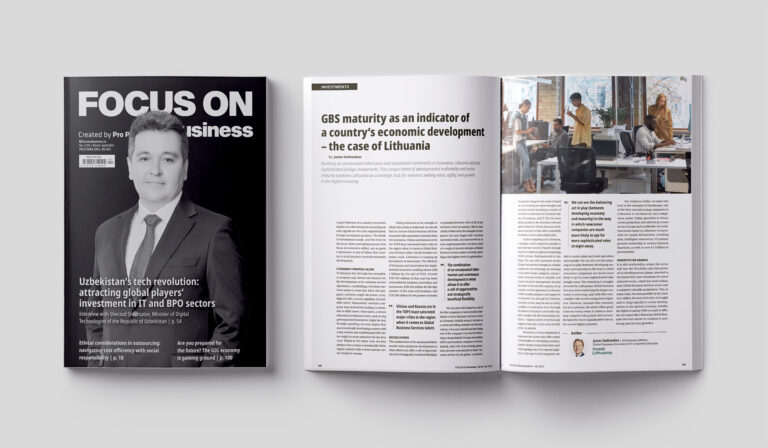Recently Invest Lithuania hosted a lively online panel looking at how Fintech can help to tackle the global problems caused by the COVID19 pandemic. The chair of that discussion, Senior Investment Advisor Rugile Stonyte, now takes a closer look at how the Fintech community is dealing with the current crisis – and shares her expert insights into how it can take the current challenge and turn it into an opportunity. Read it below.
____
Although the impact of the COVID-19 crisis will be seen for many months to come, some Fintechs might find new business development opportunities, new markets, or even funding. A new wave of mergers might arise, as innovative companies will be looking to establish partnerships in order to up consumer trust. These are just some of the takeaways from Invest Lithuania’s very first Fintech Webinar that I had the pleasure to host. This article would not have been possible without the insights of Marius Jurgilas (Member of the Board at the Bank of Lithuania), Nigel Verdon (CEO of Railsbank), and Leslie Leaf (Chief Customer Officer at Revel Systems), all of whom had joined me in a lively discussion on Remote Economy, opportunities for Fintechs, Crisis Management.
Can this crisis offer new opportunities? Depending on your business model, that might be a yes
A long-overdue revaluation of assets has already happened, with the valuation of multiple companies dropping. Ripples from this drop will affect all types of assets. Nevertheless, the agile and flexible nature of Fintech companies will help a large number of them to overcome this crisis. Some are arguably positioned better than incumbent financial institutions, but it all depends on their business model.
Transfers and transactions all happen online, so facilitators should feel less of an impact. On the other hand, businesses running card services and Point-of-Sale systems are having their main selling channels restricted. Having already invested significantly in existing tech, they cannot simply move all their business to the virtual space, so adapting to new circumstances might prove to be more challenging.
The current situation could be a great business opportunity for lending companies, as traditional banks will be more reluctant to fund SMEs – a considerable segment of the economy, which is at the same time the most susceptible to market fluctuation. “Fintechs are faster than incumbent banks, which might not have agile solutions that would help them adapt to today’s situation at hand,” Marius Jurgilas said during our discussion.
Neobanks are known to be more customer-oriented and faster to adapt to the needs of their clients than traditional banks. Their digital infrastructure tends to be cheaper and technologically more agile, which may help them successfully survive the crisis. On the other hand, traditional banks have an established trust bond with their clients, and it may be difficult for challenger banks to attract new customers. As Nigel Verdon put it: “Capital will be flying to safety”.
The current situation may also be an opportunity for Fintechs to get funded, as VCs are willing to invest capital in avoiding burning cash. Furthermore, current circumstances may lead to new partnerships, new types of cooperation and M&As among Fintechs. “Under these circumstances, rivals might end up partners,” predicts Nigel Verdon.
The 3C survival strategy
The crucial element to tackling a crisis is moving fast. Companies must make decisions quickly, as every hour might be essential. It helps any company to model a gamut of different scenarios, from worst-case to optimistic. When you know what to expect, it’s easier to make the right decision, no matter how hard it is. “Be ready to shift scenarios,” Leslie Leaf warns. “And make sure the models you choose are good not only for you but also for your customers.”
Another critical step is to impose austerity measures immediately. According to Nigel Verdon, this could be achieved by adapting the so-called 3C plan, which has three main elements:
- Cost control – companies must minimise their operational costs and let go of nice-to-haves.
- Customer orientation – existing customers should become the main priority. It is vital to keep them as satisfied as this situation allows. Companies should teach their teams empathy towards customers.
- Capital control – there are already signs that the recovery phase might last longer than anticipated. It is imperative to control capital and prepare to live with current resources for the upcoming 12 to 24 months.
Finally, it is vital to pay attention to your employees and their mental health. Everyone tolerates stress differently. People are not only facing direct challenges but also must adapt to new working conditions. Be patient and send them a calming message, move team events to virtual space to keep bonds from loosening. Let them know that you are all in this together.















